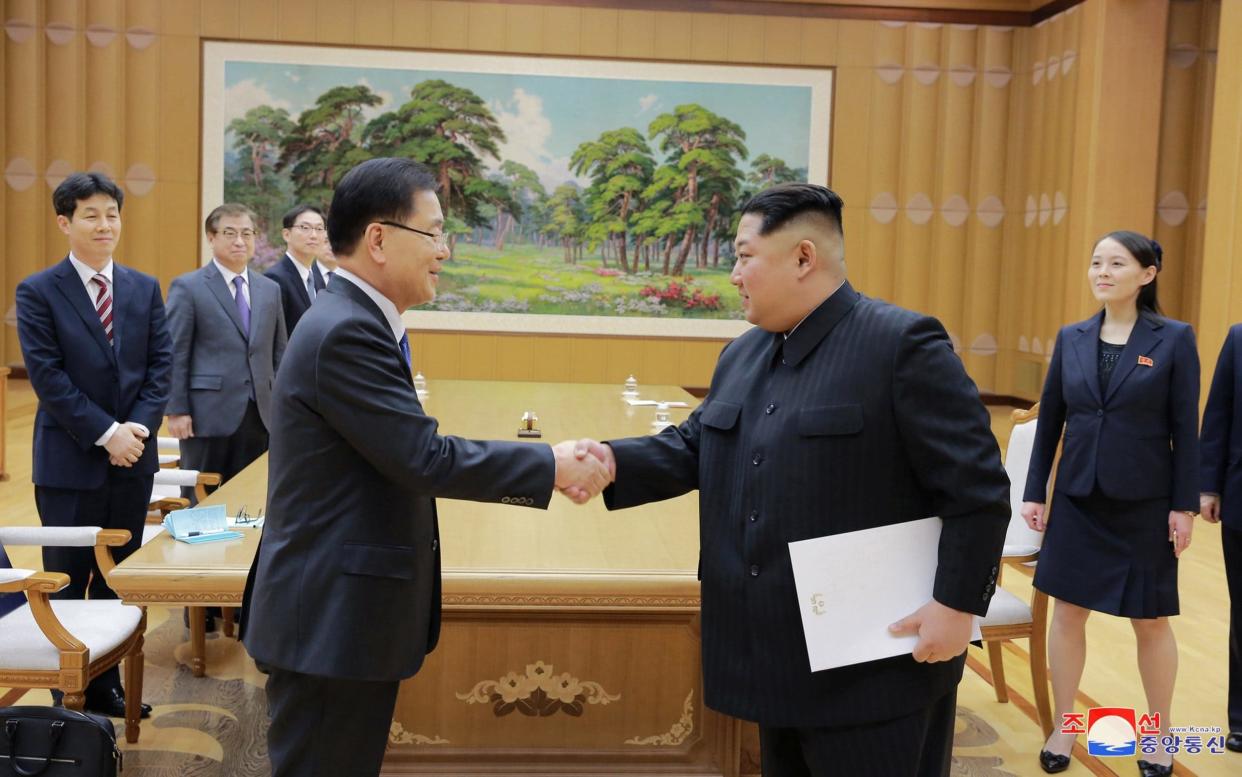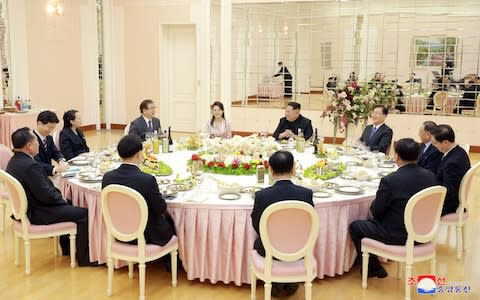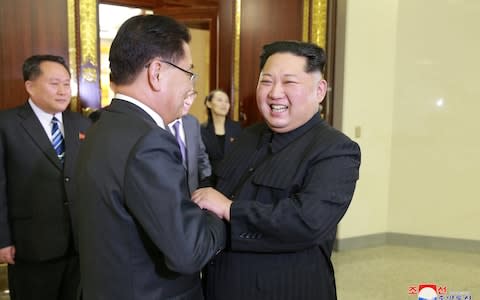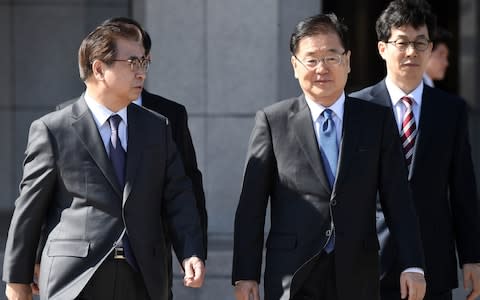Kim Jong-un wants to 'write new history' with South Korea as diplomatic thaw continues

Kim Jong-un, North Korea’s reclusive leader, said he wanted to “vigorously advance” national reunification during his first ever meeting with officials from South Korea, providing a further fillip to an ongoing diplomatic détente.
Talks at Monday's dinner were centred on a possible summit between the two nation’s leaders, raising hopes of a breakthrough on the hermit kingdom’s nuclear programme.
A report by the official Korean Central News Agency said Mr Kim told the delegation he wanted to "write a new history of reunification" and also discussed how to ease military tensions in the region.
“Hearing the intention of President Moon Jae-in for a summit from the special envoy of the south side, he exchanged views and made a satisfactory agreement,” it said after yesterday’s meeting without detailing what that agreement was.
Mr Moon, the South Korean president, had dispatched Chung Eui-yong, his national security head, and Suh Hoon, his intelligence chief, to lead a 10-member delegation on a two-day trip to the North Korean capital.

Their dinner with Mr Kim marked the first time he had personally met South Korean officials since coming to power in 2011.

The two sides were also expected to discuss how to resume dialogue between the US and North Korea over its nuclear and weapons programme.

However, it was not known until the delegation landed at 2.50pm local time that Kim Jong-un would personally meet them, in what would be his first encounter with South Korean officials since coming to power in 2011.
Mr Kim’s dinner invitation was confirmed by South Korea’s presidential office, who said that it began at 6pm local time. The envoys were carrying a letter from Mr Moon to hand to their host.
Photos provided by the president’s office, also known by the Blue House, showed the delegation walking resolutely in dark suits across the tarmac after landing in Pyongyang after the short flight from Seoul.
They were welcomed by Ri Son-gwon, chief of a North Korean agency in charge of inter-Korean affairs.
“I plan to hold in-depth discussions on various ways to continue talks between not only the South and the North, but also the North and the United States and the international community,” Mr Chung said shortly before his departure.
Mr Moon and his aides have repeatedly stressed the importance of talks between Washington and Pyongyang, and for the denuclearisation of the Korean Peninsula.
things facts you didn't know about north korea
The issue has been a sticking point in finding a diplomatic resolution to ongoing tensions about Pyongyang’s nuclear ambitions.
The North Korean foreign ministry issued a statement at the weekend mocking US demands that it denuclearise as “more than ridiculous.”
Analysts, however, pointed out that while the envoys’ visit could facilitate a future leaders summit, that the nuclear issue could not be avoided.
“Moon clearly wants to go,” said Robert Kelly, professor of political science at South Korea’s Busan University. “The real trick is making sure the North Koreans don’t turn a summit into an anti-American prestige-seeking one. It’s got to deal with the nuclear weapons one way or another.”

